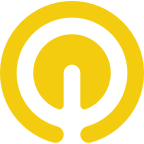Description
This course will select six most outstanding issues in contemporary Korean politics and will engage in an in-depth, interactive inquiry of those issue. They include Korean politics in history, institutional setting of Korean politics, and dynamics of political culture in Korea, profiles of political leadership, myth and reality of the developmental state and the Korean economic miracle, and debates on Korean unification. The course will expose students to contending theories and empirical reality at first hand.
After completing this course, learners will be able to
1. Grasp the most salient and timely aspects of Korean politics..
2. Place South Korean politics in comparative perspectives.
3. Digest a delicate mix of theory and practice regarding Korean politics.
4. Come up with new interpretations of political development in South Korea.
5. Most importantly renew their genuine interests in Korea and Korean politics.
What you will learn
Korean Politics in Historical Perspective
During Week 1, leaners will have an overview of Korean Politics which includes past history, the presidents and the main historical events during the 1st to the 6th Republic, and the democratic transition in 1987. The first week will help learners develop a fundamental understanding of the historical development of Korean Politics and lead leaners to think what makes Korean Politics new and interesting.
Dynamics of Democratic Transition in South Korea: Structure, Culture, and Leadership Choice
Week 2 will first summarizes the four legacies of South Korea’s politics from 1948 to 1987 and introduce the major concepts and models of democratic transition. Second, it will give a clear and detailed explanation about South Korea’s democratic transition which includes the transition dynamics, the determinants of democratic transition and the democratic consolidation.
Political Institutions in South Korea
Week 3 will start with the explanation of institution including its concept, types and major issues. In the second part, the lecture will expound South Korea’s constitutional foundation and its evolution, focusing on its nine constitutional amendments. Then it will talk about the structure and features of South Korean government, also it will briefly introduce South Korea’s presidential system which will be further explained in next week.
Profiles of political leadership
Week 4 will mainly talk about the political leadership. The lecture will first give the definition, types and evaluation criteria of political leadership. Then it will evaluate President Rhee Syngman, Park Chung-hee and Kim Dae-jung by using the criteria given in the first part and lead leaners to discuss the unique pattern of South Korean leadership.






